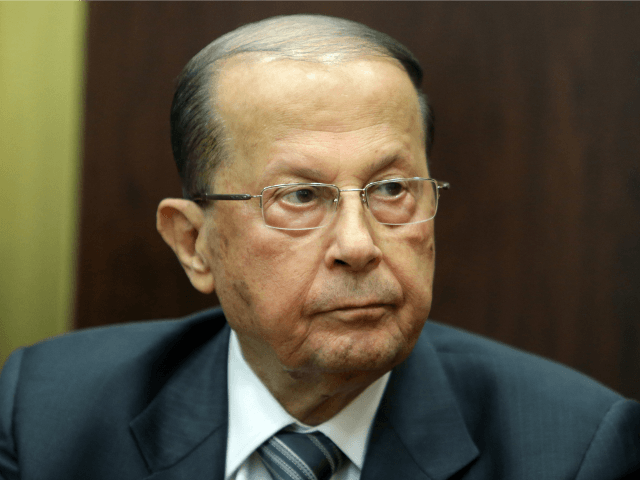RIYADH (AFP) – Lebanon seeks cooperation with Saudi Arabia, the country’s Hezbollah-backed President Michel Aoun (pictured) told Saudi television on Tuesday, after a tense year in relations between the two countries.
Aoun arrived in Riyadh on Monday night with a delegation of ministers.
In an interview with Saudi state news channel Al-Ekhbaria, Aoun said his ministers of foreign affairs, education, finance and information would meet their counterparts to discuss areas of cooperation.
Aoun, a Maronite Christian former army chief, clinched the presidency with shock support from Saudi ally Saad Hariri, a leading Sunni figure who in return was named prime minister.
Analysts say Saudi Arabia is hoping for a more stable Lebanon, after concerns about the role played by Hezbollah in the Lebanese government.
The Iran-backed Shiite militant group has fighters in Syria supporting forces of President Bashar al-Assad.
Saudi Arabia, Iran’s regional rival, backs some rebels opposed to Assad.
Riyadh last March declared Hezbollah a “terrorist organisation” and urged its citizens to leave Lebanon.
In February, the kingdom halted a $3 billion programme of military aid to Lebanon to protest what it said was “the stranglehold of Hezbollah on the state”.
The programme, funded by Riyadh, would have provided vehicles, helicopters, drones, cannons and other military equipment from France.
It aimed to ensure stability in a Lebanon weakened by internal divisions and threatened by jihadists.
Asked vaguely by Ekhbaria about the agreement, Aoun said: “Of course we will discuss all the possible issues.”
Syria’s nearly six-year civil war has been a major fault line in Lebanese politics, and the country hosts more than one million Syrian refugees.
Aoun told the Saudi channel that Lebanon’s partners “have agreed to build Lebanon, regardless of the results in the other countries, because building Lebanon is for all, and secondly, security and stability is for all.”
He said his country’s internal political situation has improved, and expressed confidence that “balance” can be maintained.
“The state must realise, and maintain, security and stability for individuals and groups even if there are different political visions regarding neighbouring and regional countries,” Aoun said.

COMMENTS
Please let us know if you're having issues with commenting.